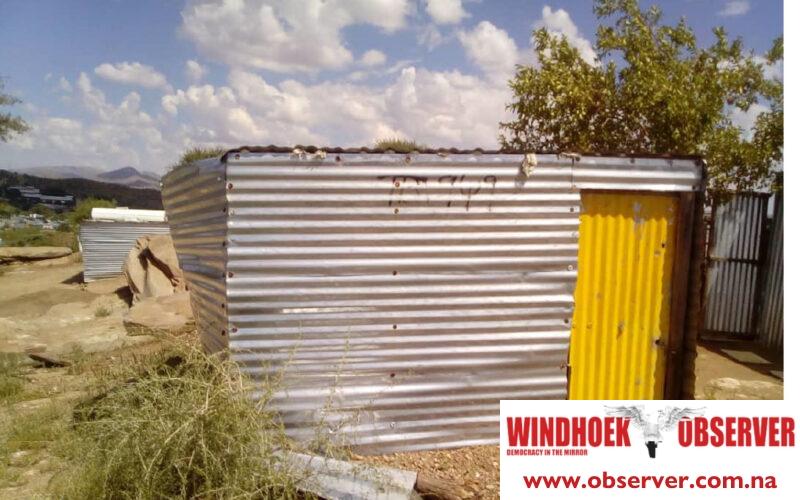Stefanus Nashama
Heavy rainfall has reportedly caused a lot of damage to the shacks of people living in the informal settlements of the capital city.
Heavy rain accompanied by storing wind and loud thunder were observed in Windhoek on Saturday night.
The rain, according to some residents, started at around 20:00 and lasted for several hours into the evening.
Many people believe this was the heaviest rain since the rainy season started last year in November.
Some residents woke up on Sunday morning only to be faced with the destruction that they immediately had to repair in order to ensure that they would stay dry in case of more rainy weather.
Sounds of hammers and generators could be heard and observed all over informal settlements like Havana and Goreagab Dam.
Despite the damage to the shacks, no lives were lost and no injuries were reported.
Some affected residents had to spend the night at the homes of their neighbours after their shacks were destroyed during the storm.
While sharing their experiences with Windhoek Observer over the weekend, some affected residents expressed mixed feelings. Some said that it was God’s will to send unexpected heavy rain that left them homeless.
“This is nature. We cannot blame anyone for the damage. Not even the government,” one of the victims who works as a Security Guard said.
The man said, that this year, rain has been reported to be insufficient, especially for agricultural activities that are vital for food security.
“We cannot stop the rain. Without it, we won’t be able to produce enough food for our families,” he said.
According to the Security Guard, when it started raining, he thought his shack was strong enough.
However, during the storm, as the rain continued to pour down, the roof of his shack sprung a leak after some of the material was blown away by the strong wind.
Without a proper roof he had no choice but to run to a neighbour where he sought shelter for the night.
“As you can see, I will have to buy new roofing material to replace the damaged parts. This will include transport money to bring them home and the money to pay people who will assist in replacing the roof for me,” he said.
He added that the cost of new material and labour will cause him to go into debt.
Tamson Shikongo, who also resides in the Goreangab Dam informal settlement, said he was negatively affected by the rain because his shack was also demolished.
“I was with my 10-year-old son when it started raining. All of a sudden, without knowing that anything could happen, the shack was destroyed from behind and the water passed into the room,” he narrated.
He added that the night sky was filled with lightning and thunder while a strong wind blew constantly.
According to Shikongo, he tried to block the water flooding his home but he did not succeed because the rain kept falling.
“We had to seek help from my uncle whose shack is made with steel and big beams. That is where we slept,” he said.
Shikongo informed this publication that although plans to fix his three-room shack are underway, many things are damaged. This includes some school books and national documents.
“Who should you blame for the way of nature? Of course, no one. We just have to fix our damaged stuff. We can seek assistance from good Samaritans to help us with old materials,” he expressed.
One of the informal settlements’ leaders, Simon Ashipala said no one can stop the rain, urging members of the informal settlements to make sure their shacks are strong enough to resist the rain.
He also warned people not to erect shacks in riverbeds where water runs during heavy rain.
About two weeks ago, a similar incident was reported in Northern Namibia, where heavy rain left many houses damaged.
It was also reported that animals like goats, sheep and cattle were killed by lightning.




